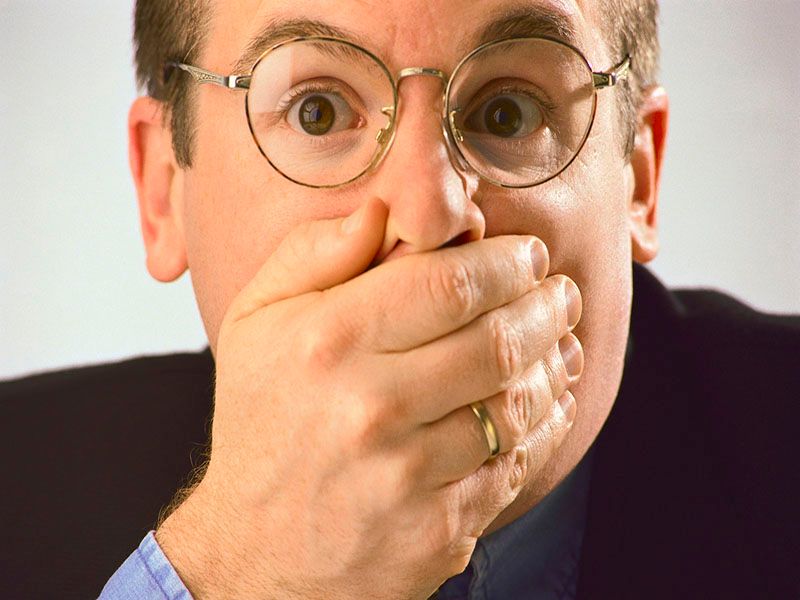
About 1 in 4 people worldwide experience bad breath, according to the Cleveland Clinic — but that doesn’t mean you’re stuck with it.
Discover the most common causes of bad breath (halitosis) and some tried and true ways to get rid of it, for good.
Bad breath causes
“Bad breath can have various causes, including diet, gastroesophageal reflux [GERD] and poor oral hygiene,” explained Cleveland Clinic dental hygienist Tenika Patterson, in a blog.
The Cleveland Clinic notes that the majority of bad breath cases are due to inadequate brushing, flossing and dental cleanings. These can lead you to develop bad breath from:
- Tooth decay
- Gum disease (gingivitis and periodontitis)
- Elevated levels of bacteria in your mouth.
Other bad breath causes include:
- Infections in your lung, throat and nose
- Dry mouth
- Food stuck in your tonsils
- Diabetes
- Head and neck cancers
- Sjögren’s syndrome
- Liver or kidney disease.
How to get rid of bad breath
Here are five ways to fight bad breath and keep your mouth smelling clean and fresh.
Brush up on your dental routine
Brushing at least twice a day for a minimum of two minutes each can help keep halitosis away, according to the Cleveland Clinic. Use a soft-bristled brush and replace it every 3 to 4 months to ensure your breath is clean and fresh.
Flossing is just as important as brushing, because it removes food from between your teeth so that bacteria can’t flourish there. Try to floss at least once a day.
The clinic also suggests using an antibacterial mouthwash that’s alcohol-free and scheduling regular dental cleanings to optimize your oral health.
Try tongue scraping
Patterson explained that while brushing your tongue can help with bad breath, “tongue scraping can do a better job at removing that plaque and bacteria off the tongue’s surface.”
The Cleveland Clinic advises using a stainless steel, plastic or copper tongue scraper after every brushing and flossing.
Deter dry mouth
According to the Mayo Clinic, there are a number of ways to keep dry mouth at bay, including drinking plenty of water, chewing sugar-free gum and sucking on candy. It also suggests avoiding tobacco products, sodas and coffee because these tend to suck the moisture out of your mouth.
If these strategies don’t work, reach out to your dentist to discuss treatments they can prescribe to help increase your saliva flow.
Spice it up
One simple and effective way to keep bad breath at bay is by eating fresh or dried parsley leaves. And this spice isn’t the only one that has shown some success in helping alleviate the condition.
According to a study published in the Journal of Agriculture and Food Chemistry, ginger is also an effective natural remedy for fighting bad breath. It contains a component called 6-gingerol that breaks down certain odor-causing compounds in the foods you eat within seconds.
“As a result, our breath also smells better,” lead study author Thomas Hofmann of Technical University of Munich, said in a news release from his university’s Leibniz Institute for Food Systems Biology.
Eat for fresh breath
While some spices are good for bad breath, the Mayo Clinic recommends avoiding garlic, along with onions. In addition, foods with added sugar may increase your risk of developing halitosis.
“Most of the time, bad breath is a hygiene problem, and you can take steps to improve it,” Patterson noted.
However, if you have been practicing good hygiene and your bad breath is lingering, the Cleveland Clinic suggests talking to your dentist or health care provider. They can help determine if there’s an underlying cause for your bad breath, such as gum disease or other health issues. From there, they can provide you with the most appropriate treatments.
Source: HealthDay

Leave a Reply